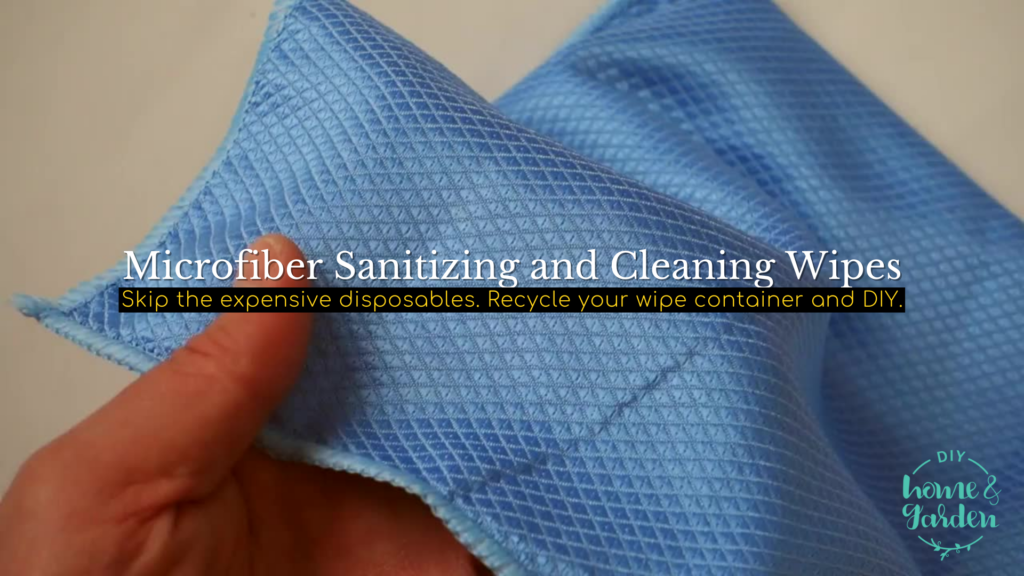If you want the freshest smelling home ever, skip the chemical lemony-fragranced commercial products and turn to the real thing. The humble lemon. This bright yellow fruit does much more than infuse your water or keep your fruit salad vibrant. In fact, you should try to clean your kitchen with lemon! Its bright, citrus fragrance is perfect for cleaning, imparting a delightful aroma everywhere you use it.
We will look at sixteen ways you can clean your kitchen with lemon that you might never have considered in the past.
Why Should You Clean Your Kitchen with Lemon?
Lemon is an excellent medium for all your cleaning needs. Here are six reasons why you should clean your kitchen with lemon.
- Lemon juice has a pH of between 2 and 3, making it acidic; therefore, it can easily cut through grime or grease (you should rinse, though, afterward)
- The natural oils contained in the lemon rind impart shine on many surfaces
- The Journal of Food Safety deemed lemon a natural antibacterial, safe for use around foods.
- The antibacterial properties also mean that lemons can help destroy odors caused by bacteria.
- Its lemony-fresh fragrance is zesty and pleasing to most people.
- When you finish using a lemon for cleaning, you can toss the peel, seeds, and other waste into the compost.
What Shouldn’t You Clean in Your Kitchen With Lemon?
Lemon may cause discoloration on some surfaces. For example, it can discolor granite or marble vanity tops or kitchen counters. Also, remember when girls used to apply lemon juice and head out to the sunshine to get highlights? Like your hair, fabrics (think curtains, blinds) could lighten if you apply undiluted lemon juice.
16 Ways to Freshen Up and Clean Your Kitchen Using Lemon
Look at using this excellent citrus fruit for a cleaner kitchen.
1 – A fragrant entrance to greet you
Put three or four freshly cut lemons in a small bowl, arranging them attractively near the kitchen door. The smell is incredible when you walk into the room. You can add floral sprigs, pine cones, or other natural elements for a beautiful centerpiece.
2 – Clean your kitchen collection of stinky plastic containers
Plastic bowls absorb and then trap funky odors. Squeeze in some lemon juice, and swish it to cover all surfaces. Let it work its magic for 15 minutes, then rinse. The old food odors will be but a distant memory.
3 – Clean your coffee grinder
Using your coffee grinder for milling spices or herbs could leave behind a taste that impacts the coffee. Add half a piece of bread and a couple curls of lemon rind. Give the coffee grinder a few whirls. Dump out the bread and lemon, carefully wipe out any crumbs, and you will be all set to grind your favorite beans.
4 – Cut through the grease on your wooden cutting boards
Wood is naturally porous. So wooden cutting boards can trap grease and food particles. Therefore, they become a breeding ground for bacteria. Kill the nastiness by scrubbing the boards with a paste of baking soda and water with a nice, fragrant dash of lemon juice. Rinse and allow the board to air dry. You’ll have it prepped up for the next time you need it!
5 – Tackle greasy glass bakeware
Take on greasy glass bowls or baking dishes, or burnt-on food with the same baking soda, water, and lemon juice paste. The acidity of the lemon cuts through the mess while the baking soda gently scours. Caution: Use this on GLASS bakeware or casserole bowls; it could damage metal pans–test a small area first.
6 – Clean your kitchen trash can with lemon
Hosing out the trash can is an unpleasant but inevitable task. The next time, rinse the trash bin as usual. After removing any loose debris, squeeze the juice of three or four lemons into the can. Swoosh it around, rinse, and let it air dry in the sunshine for thirty minutes before returning it to the kitchen.
7 – Deodorize the garbage disposal
Put half a cup of canning salt and one lemon, quartered, into the garbage disposal. Run the machine for thirty seconds to clear the debris and deodorize it.
8 – Unclog your cheese grater
Love my cheese grater, but I hate the bits of leftovers that get stuck–especially when grating softer cheeses. No worry. Just run the flesh of a lemon over the grater, then rinse the entire thing. Problem solved.
9 – Clean your kitchen cloths or towels
Remember the warning about how lemons might lighten up fabrics? In the case of dishcloths with plenty of life–but ugly stains–that could be a good thing! Squeeze some lemon juice onto the stains, set the cloth or towel in the sunshine for an hour, then launder. Most food stains will lighten up, making your dishcloths or cutest towels pretty again.
10 – Shine up those stainless steel faucets and fixtures
Remember–the fleshy part contains oils that can add shine to many surfaces. Cut a lemon in half. Disinfect by squeezing the juices onto the tap handles. Rinse. Finish the treatment by running the fleshy part that remains over the faucets to add that shining oil. Wipe dry with a clean towel.
11- De-funk your microwave
Microwaves tend to trap in food odors, splashes of food, and a general mess. Cut a lemon into quarters, and give them a gentle squeeze to activate the essential oils. Drop them into a glass bowl, covering them with water. Zap the bowl of lemon water in the microwave for thirty seconds. The steam helps release the food gunk while the lemony aroma offsets old food smells. Now that the food is loosened by the mist, it will wipe out relatively easily with a damp cloth or sponge.
12 – Deodorize your fridge
Everyone knows how mom used to keep baking soda in the fridge to eliminate odors. You can up the ante on that classic use–put the baking soda in a shallow bowl along with a lemon–cut it in two. The baking soda absorbs terrible odors while the lemon releases a pleasing fragrance.
13 – Descale your kettle
If you boil water in the same kettle for tea or coffee every day (yes, some of us still make pour-over coffee), you probably get a white film that builds up in it. That is limescale, a residual from your tap water.
Descale your kettle by squeezing lemon juice into it. Let it sit for five minutes, rinse, and dry it out with a towel. The white film will disappear, improving the flavor quality of your coffee or tea.
14 – Clean your kitchen knives or flatware, eliminating rusty spots
When you clean your kitchen knives or flatware, do you dry them every time? If you don’t dry and put up your silverware immediately, you might begin to notice tiny pits of rust. To extend the life of these wares, put lemon juice on the rust spot for about ten minutes. The acidic juice will eat through the rusty specks. Wash, dry, and put them away safely from the water.
15 – Wash your dishes
Here’s a natural alternative to chemical dish liquids–baking soda and lemon. Make the two ingredients into a washing “paste” for your dishes. It takes a bit more rinsing, but your dishes will be cleaner than ever before–and sanitized by the lemon.
16 – Clean the pet bowls
Do the same dishwashing method to wash up your pet bowls. Your furry buddies deserve a clean, sanitary dining experience, too!
The Takeaway: Clean Your Kitchen with Lemon, Skip the Harsh Chemicals
If you want something that will tackle the messiest kitchen cleaning jobs without the dangers of harsh chemicals, consider picking up a lemon or two. And don’t forget–lemon peels make a healthy addition to your compost, so this solution is also a zero-waste effort.
Do you use lemon for your kitchen cleaning tasks? We’d love to hear how you put it to good use. Connect with us on social media for discussion. Until the next time, have a happy DIY day.
- Strawberry Lemonade Recipe (no added sugar) - 03/20/2025
- Barndominiums: Weighing the pros and cons - 12/30/2024
- Ginger Orange Marmalade Recipe: Sweet, Tangy, and Just a Little Spicy - 11/09/2024




